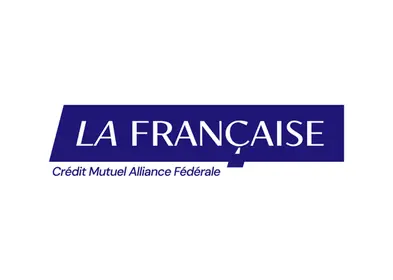

Ahead of COP30, scheduled for November 10, numerous research reports have assessed the progress made since the signing of the Paris Agreement. While this progress is undeniable, the potential impact of new national ambitions remains uncertain. In this context, one question arises: what can or should we expect from this 30th edition?
Political Instrumentalization of Climate Issues
Our collective civic contradictions prevent us from accelerating the necessary action for transition and adaptation. Although 89% of the global population in 2024 expressed support for stronger climate policies[1], half of the world’s population cast their ballot in favor of leaders or political parties skeptical of Environmental, Social, and Governance (ESG) issues—whether by belief or opportunism.
The politicization of climate issues has no legitimate place in COP negotiations, which remain the sole platform capable of fostering coordinated and unified global action for transition and adaptation. Although nearly one-third of the countries that signed the Paris Agreement are yet to submit their updated National Decarbonization Plans for 2030, efforts already made have reduced end-of-century warming projections to +2.7°C[2] from +4°C initially. The direction is encouraging, but unlocking financing is now essential to achieve this trajectory. In this context, the annual mobilization of $1.3 trillion by 2035[3] to support climate transition and adaptation financing will be a key element of COP30.
Companies Taking Silent Action
While the politicization of climate and ESG issues, regulatory changes, and pricing uncertainties have influenced how corporate sustainability communication, companies continue to uphold their commitments. In 2025, the United States recorded a +9% increase in net-zero commitments from companies, despite the local political climate[4], and 85% of companies in supply chain sectors tracked by the Massachusetts Institute of Technology (MIT) intensified or maintained their sustainability efforts after the country’s withdrawal from the Paris Agreement[5].
According to a 2025 study by UNGC – Accenture[6], 88% of business leaders believe the economic case for sustainability is stronger today than five years ago. However, only half feel comfortable publicly communicating their progress in the current political climate.
Private Equity: Sustainable Investment as a Performance Driver
The politicization of ESG topics attempts to suggest that investments in certain technologies—essential for transition and adaptation—lack economic rationale. Yet, concrete evidence shows outperformance linked to decarbonization efforts by companies held by Private Equity funds compared to their listed counterparts.
A recent study by Boston Consulting Group[7], based on a sample of 9,000 companies across more than 300 Private Equity funds, found that diversity and decarbonization efforts generated average EBITDA growth of 4% in the U.S. and 7% in Europe over an average holding period of four years. This was achieved while reducing scope 1 and 2 emissions five times faster than listed companies.
This performance is explained by better alignment of interests made possible by the medium-to-long-term horizon specific to Private Equity, which locks in capital over extended periods. Investors were able to support companies in deploying short-term decarbonization levers, such as green electricity, while targeting economic value creation.
The adverse impact of climate change is already observable and is considered one of the top three challenges for companies—alongside the adoption of new technologies and artificial intelligence—by 45% of the 2,000 business leaders surveyed in a Deloitte study.
The course is set, action is underway, but since adaptation will be inevitable, let’s ensure it is orderly rather than disorderly[8].
By Marie LASSEGNORE, CFA, Head of Financial and ESG Analysis and member of the Executive Committee of Crédit Mutuel Asset Management
Crédit Mutuel Asset Management is an asset management company of Groupe La Française, the holding company of the asset management business line of Credit Mutuel Alliance Fédérale.
This commentary is provided for information purposes only. The opinions expressed by La Française are based on current market conditions and are subject to change without notice. The information contained in this publication is based on sources considered reliable, but the La Française group does not guarantee that it is accurate, complete, valid, or relevant. Published by La Française Finance Services, head office located at 128 boulevard Raspail, 75006 Paris, France, a company regulated by the Autorité de Contrôle Prudentiel as an investment services provider, no. 18673, and registered with ORIAS (www.orias.fr) under number 13007808 on 4 November 2016 is a subsidiary of La Française. Crédit Mutuel Asset Management: 128 Boulevard Raspail, 75006 Paris is an asset management company approved by the Autorité des marchés financiers under n° GP 97 138 and registered with ORIAS (www.orias.fr) under no. 25003045 since 11/04/2025. Public Limited Company (Société Anonyme) with share capital of €3,871,680, RCS Paris n° 388 555 021.
[2] Emissions pathways to 2100 - Climate Action Tracker | Climate Action Tracker
[4] Net Zero Stocktake 2025 | Net Zero Tracker
[5] 2025 State of Supply Chain Sustainability Study - MIT Sustainable Supply Chain Lab
[6] 2025-UNGC-CEO-Study-Digital.pdf
[7] The Value of Staying Sustainable in Private Markets | BCG






